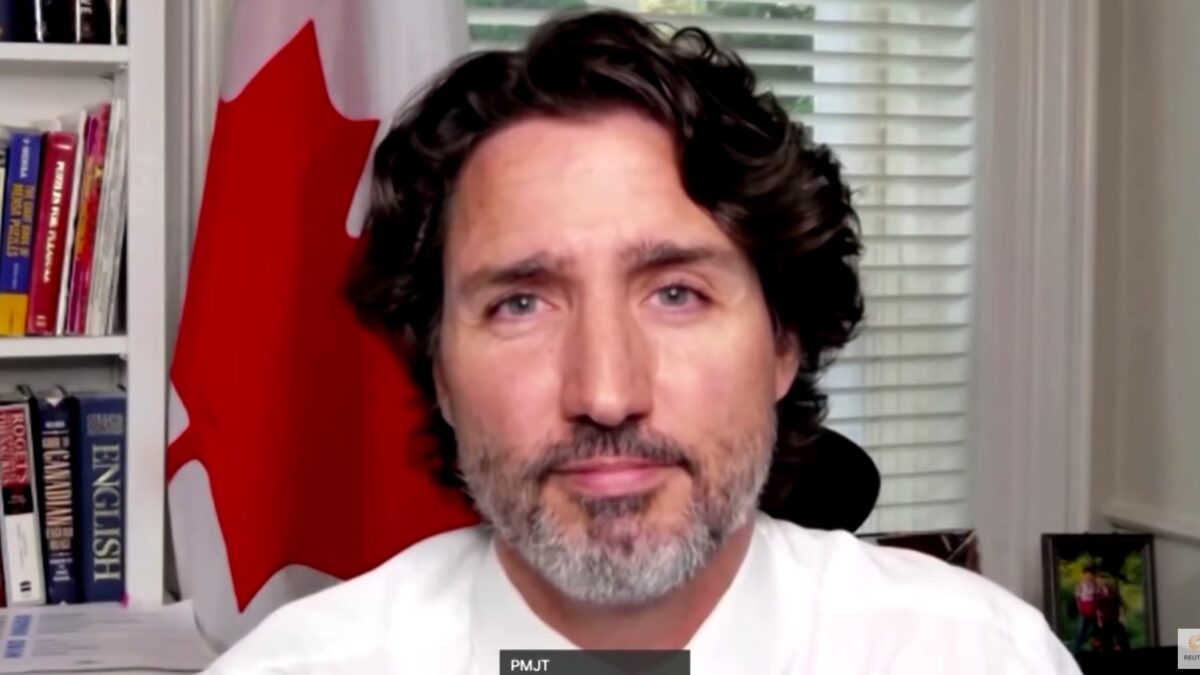
U.S. Representative Elise Stefanik, R-N.Y., wrote a letter last week calling on the Canadian government to scrap its controversial ArriveCan app for anyone seeking to enter the country, referring to the mandate as a “misguided burden” on travelers.
ArriveCan ostensibly screens incoming travelers for Covid-19 while enabling the federal government to collect a wealth of electronic data, personal information, and medical records, including someone’s vaccination status. Refusing to use the app while traveling to Canada can result in significant fines and even mandatory quarantine.
“The ArriveCan app serves no public health purpose and continues to harm both commerce and the flow of traffic at our border. I urge you and the Canadian government to cease this app’s harmful impacts on our border communities and immediately halt its required use,” the congresswoman stated.
When it comes to testing, vaccination status, and quarantine requirements, the app is completely at odds with new guidance from the U.S. Centers for Disease Control and Prevention (CDC). So why exactly is Canada refusing to follow the so-called science?
Prolonged processing and wait times at the U.S.-Canada border are also being attributed to the app, as Stefanik suggested. “We’re so short-staffed and spending so much time dealing with this app that we really don’t have time to do our actual jobs anymore,” said Mark Weber, national president of the Customs and Immigration Union.
Pressure has been mounting on Canadian Prime Minister Justin Trudeau ever since a “glitch” earlier this summer mistakenly ordered more than 10,000 people to quarantine at home. The government waited 12 days to notify them of the error, prompting concern from data and privacy experts who say the ArriveCan app may be violating constitutionally-protected mobility rights.
In May, it was revealed that Canadian authorities had “closely tracked” citizens via their smartphones — without their knowledge — during the pandemic. Through unprecedented surveillance, public health officials were reportedly “able to view a detailed snapshot of people’s behavior, including visits to the grocery store, gatherings with family and friends, time spent at home, and trips to other towns and provinces.”
This news came several months after the Public Health Agency of Canada (PHAC) admitted to secretly spying on more than 33 million mobile devices during lockdowns in order to monitor people’s movements and activities. They weren’t following the science; they were following you.
Stefanik isn’t the first U.S. elected official to express concern over authoritarian power grabs north of the border.
Back in February, Florida Gov. Ron DeSantis slammed the crowdfunding platform GoFundMe for refusing to release more than $9 million in donations for Canadian truckers protesting vaccine mandates. After DeSantis labeled the move “fraud” and vowed to work with his Attorney General Ashley Moody to investigate the organization for “deceptive practices,” the company caved and agreed to return the money to donors.
That same month, U.S. Sen. Josh Hawley, R-Mo., reiterated his call for Canada to be placed on a special watch list for religious liberty violators after Canadian authorities notoriously fined, arrested, and jailed Christian pastors for violating the country’s draconian pandemic restrictions on religious gatherings and services.
“The United States keeps a designation of folks who are religious liberty violators, nations that are religious liberty violators,” the senator said. “I’ve called for Canada to be put on that list, and I think that we need to consider all of the options that are available for that.” Hawley had previously urged the U.S. Commission on International Religious Freedom to consider adding Canada to their watch list.
These Republican officials are acting in the best interest of their constituents but are also advocating for what is in the best interest of Canadians and all people who cherish personal freedom.









